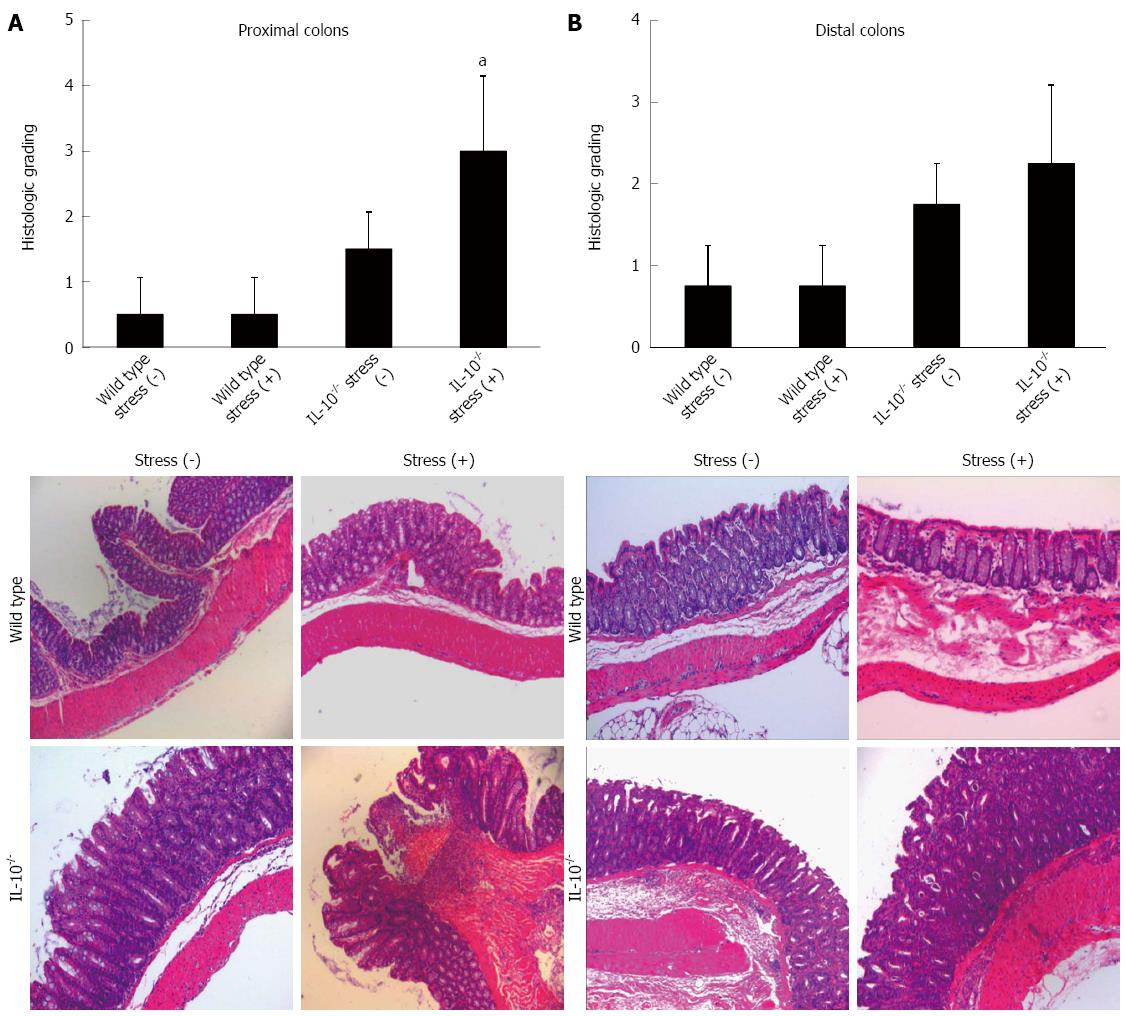Copyright
©The Author(s) 2015.
World J Gastroenterol. Jul 28, 2015; 21(28): 8580-8587
Published online Jul 28, 2015. doi: 10.3748/wjg.v21.i28.8580
Published online Jul 28, 2015. doi: 10.3748/wjg.v21.i28.8580
Figure 1 Histologic evaluations of (A) proximal and (B) distal colons in both wild-type and interleukin-10-/- mice.
Wild-type (stress positive, n = 4; stress negative, n = 4) and interleukin (IL)-10-/- mice (stress positive, n = 4; stress negative, n = 10) were physically restrained in a well-ventilated, 50cc conical polypropylene tube for 2 h per day for 3 consecutive days, as described in Materials and Methods. The total histologic score was derived from the severity of total inflammation and crypt damage (mean ± SD). Mild colitis was observed in some of IL-10-/- mice without restraint stress. In contrast, epithelial hyperplasia, crypt abscess, ulceration, and transmural inflammation were observed in IL-10-/- mice exposed to restraint stress. Results are representative of at least three separately examined sites (Magnification, x 40). Stress (+), restraint stress for 2 h; IL-10-/-: IL-10 knockout mice; aP < 0.05 vs stress negative IL-10-/- mice.
- Citation: Koh SJ, Kim JW, Kim BG, Lee KL, Kim JS. Restraint stress induces and exacerbates intestinal inflammation in interleukin-10 deficient mice. World J Gastroenterol 2015; 21(28): 8580-8587
- URL: https://www.wjgnet.com/1007-9327/full/v21/i28/8580.htm
- DOI: https://dx.doi.org/10.3748/wjg.v21.i28.8580









